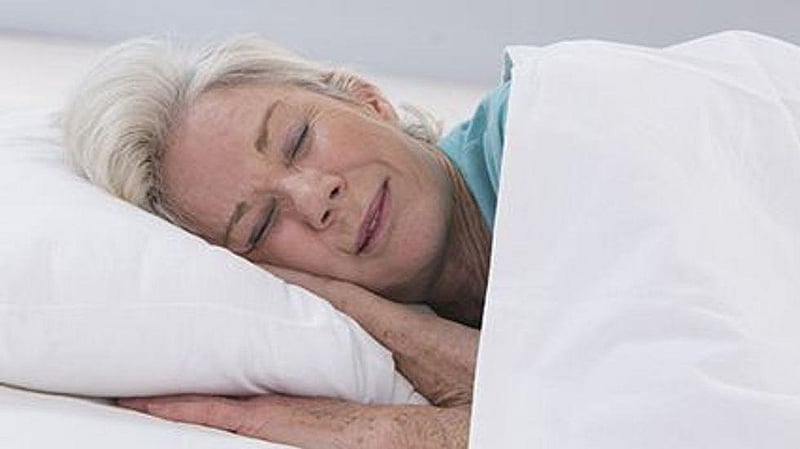Get Healthy!

- Cara Murez
- Posted September 23, 2021
Study Probes Relationship Between Migraines and Sleep
Do migraines cause poor sleep or does poor sleep cause migraines?
Though it's hard to say, it does appear that there's a difference in how well people with migraine think they sleep and how well they really do.
A large research analysis published online Sept. 22 in the journal Neurology found that adults and children with migraine headaches may get less quality REM sleep than other folks.
REM is shorthand for rapid eye movement. It's the stage of sleep with the most brain activity and vivid dreams. It's also important for learning and memory function.
"We wanted "¦ a clearer picture of how migraines affect people's sleep patterns and the severity of their headaches," said study leader Dr. Jan Hoffmann of King's College London in the United Kingdom. "That way, clinicians can better support people with migraines and deliver more effective sleep treatments."
For the study, Hoffmann's team analyzed 32 studies that included over 10,000 people. A questionnaire asked participants how long it takes to fall asleep, their total sleep time and the use of sleep aids. Higher scores indicated poorer sleep quality. Adults with migraine headaches had higher overall scores than other people. The difference was even greater in people with chronic migraines.
For many of the reviewed studies, participants were monitored in an overnight lab that diagnoses sleep disorders by measuring brain waves, blood-oxygen levels, heart rate and eye movement. Participants with migraine headaches in these studies had less REM sleep as a percentage of their total shuteye than their peers without migraines.
Kids with migraine headaches had less total sleep time, more wake time and fell asleep more quickly, which Hoffmann suggested could be because they're more sleep-deprived.
"Our analysis provides a clearer understanding of migraines and how they affect sleep patterns and illustrates the impact these patterns might have on a person's ability to get a good night's sleep," Hoffmann said in a journal news release.
The researchers said one limitation of the analysis is that sleep medications were not taken into account. Also, the study does not prove cause and effect, the study authors added.
More information
The U.S. National Library of Medicine has more on migraine.
SOURCE: Neurology, news release, Sept. 22, 2021







